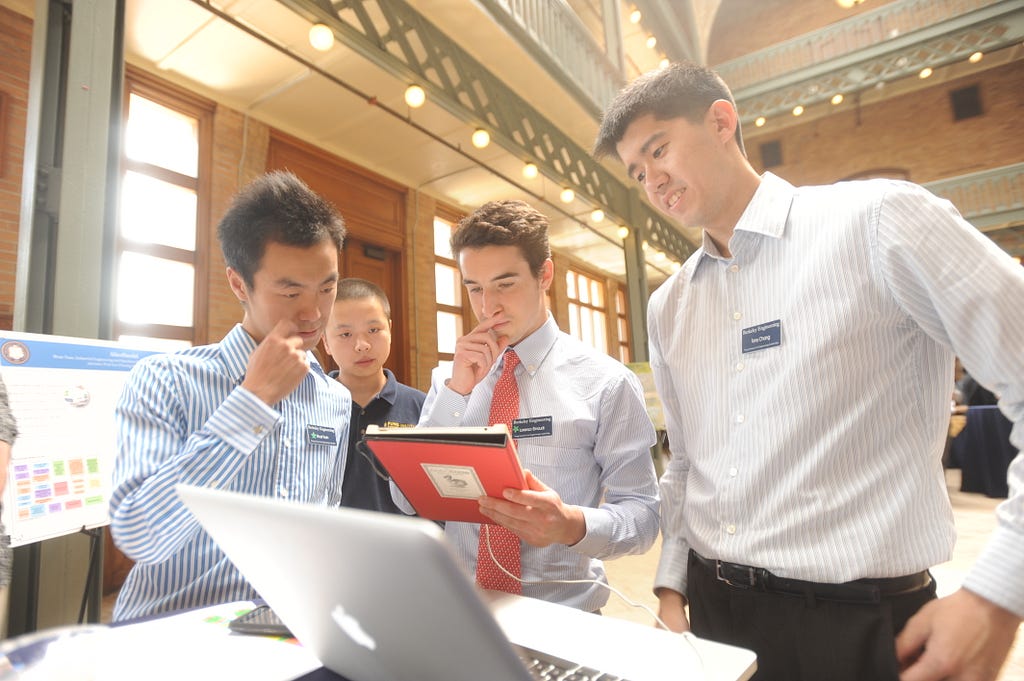
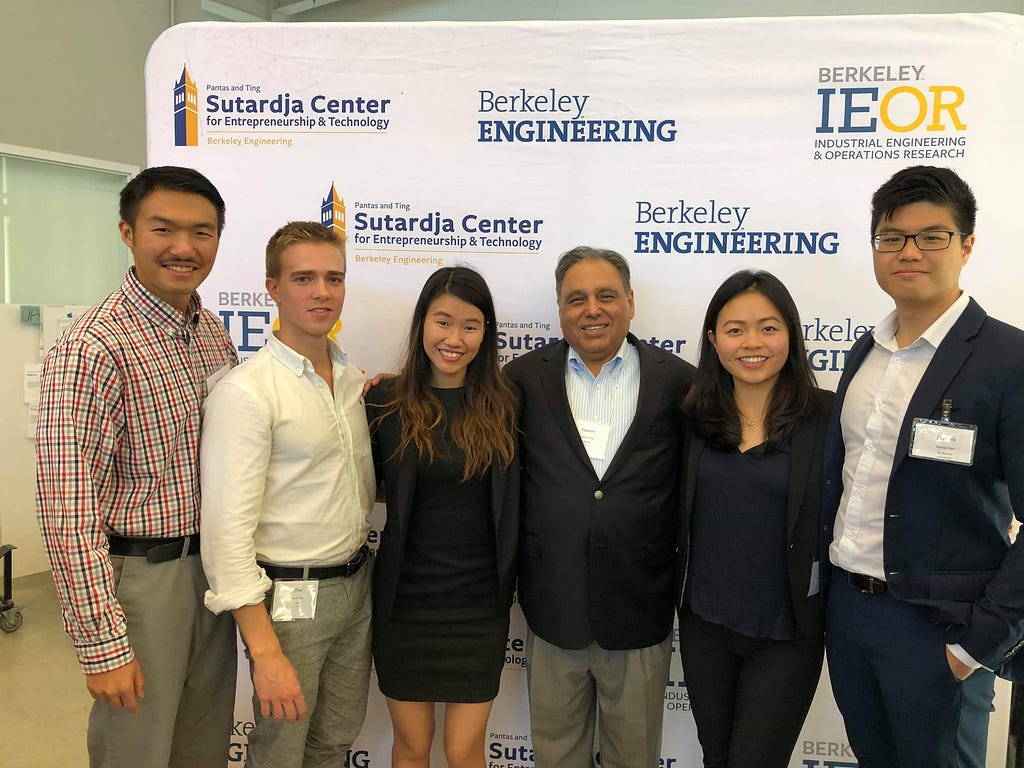
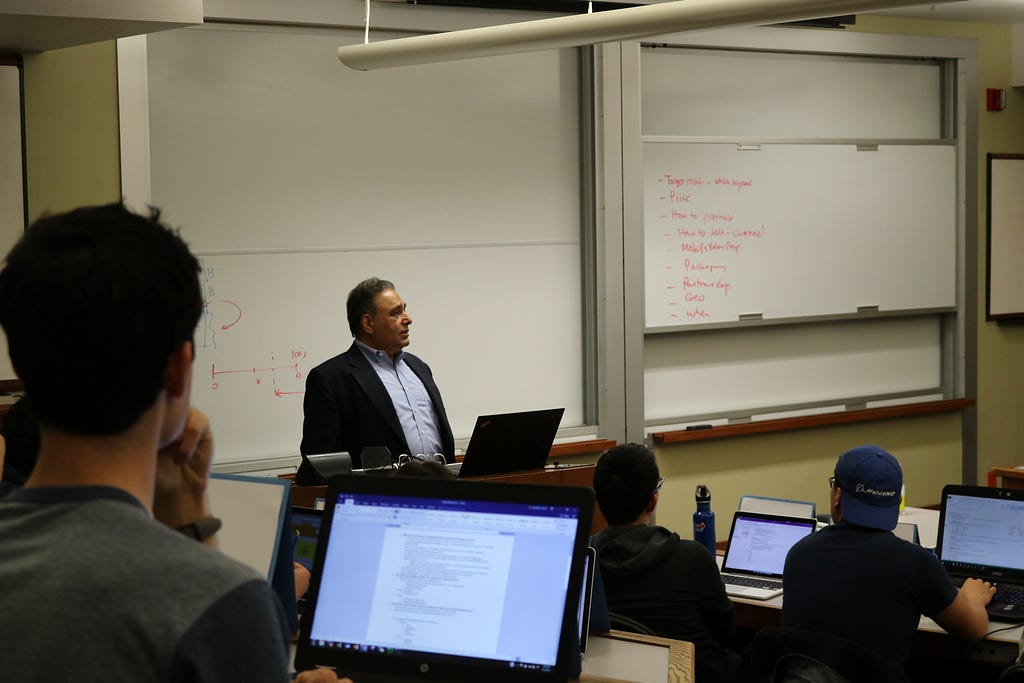
“We analyzed venture capital term sheets in a lesson and did in-class roleplaying — students had mock client interviews and debates with one another. Role plays are great because they give you a much better idea of how complicated interviewing a potential customer or debating with a partner can be.”
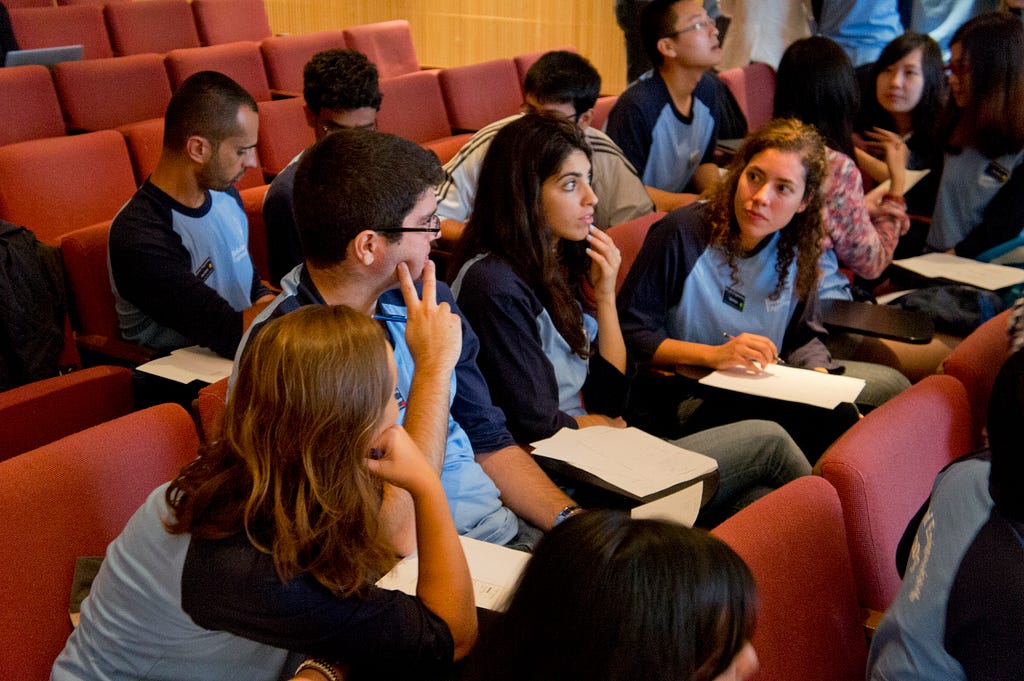
“Business classes help [engineers] better understand the world we live in.”I think learning the business side is important for engineers because you need to know how to communicate what you do and who you are efficiently. No matter what industry you want to work in. Technical classes are great, but they don’t teach you how to communicate with peers, an audience or potential customers. Also, they focus on very specific areas of science, making it difficult to see the bigger picture. On the contrary, business classes help us better understand the world we live in. When working for a company, or even as a company, we are pieces of a bigger machine. I find it powerful to understand how it all comes together, instead of being in a bubble which takes an input and produces an output. I do not think they should replace technical classes by any means, but they are very powerful complements which help me to stay out of this bubble as much as possible and show me another way of viewing our society.
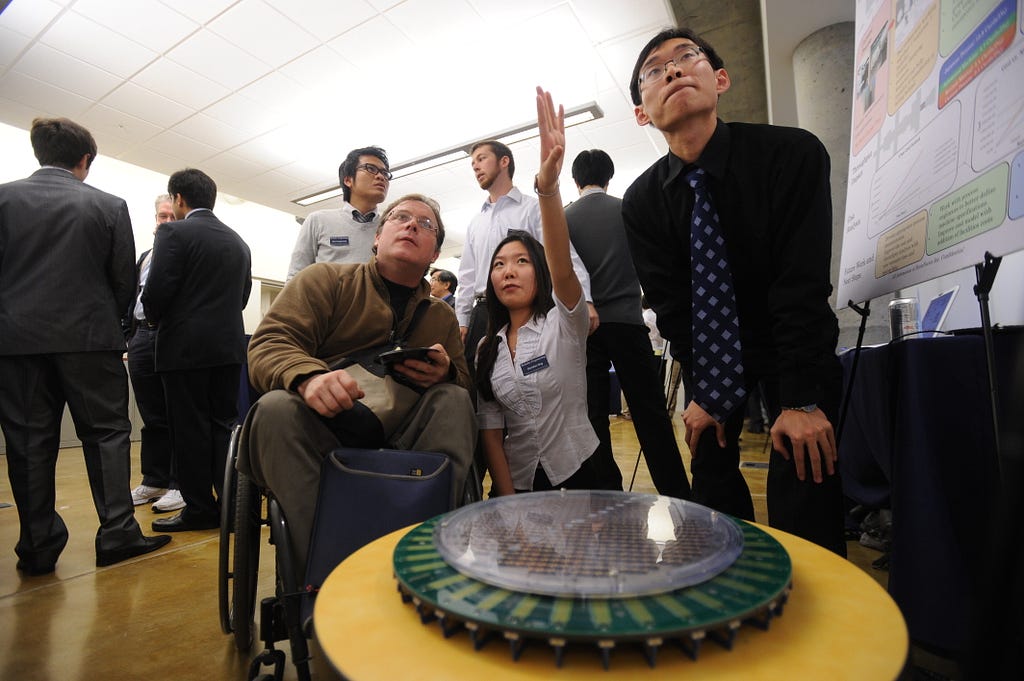

Oskar Radermecker: ‘Business classes help engineers better understand the world we live in’ was originally published in Berkeley Master of Engineering on Medium, where people are continuing the conversation by highlighting and responding to this story.


